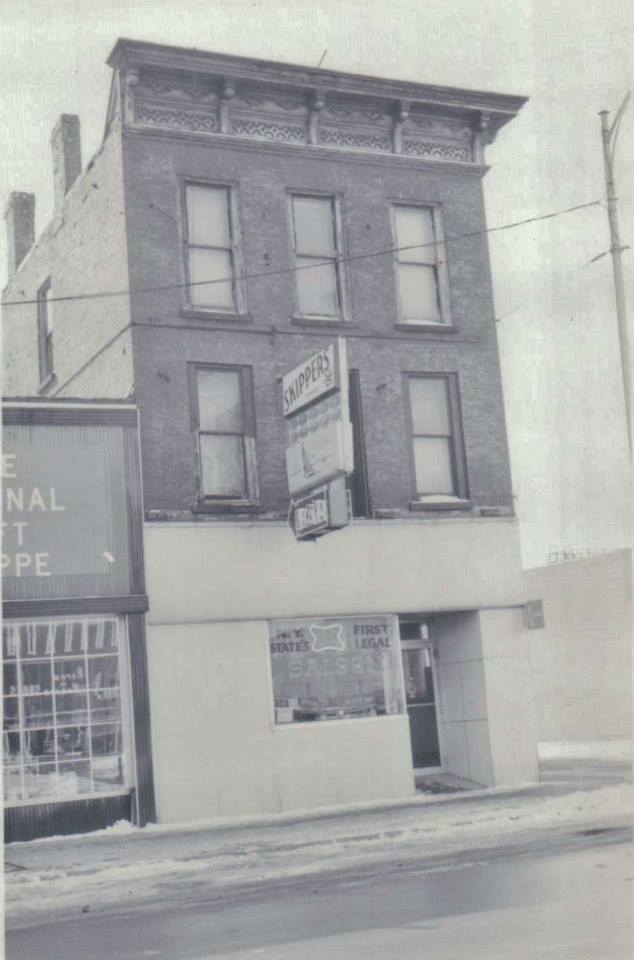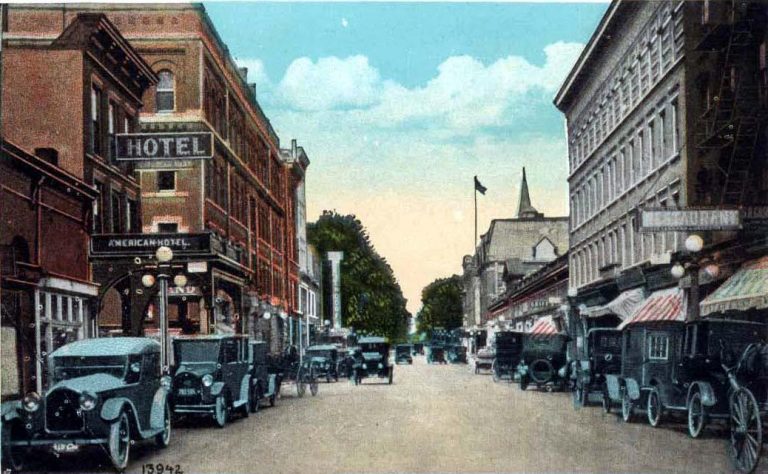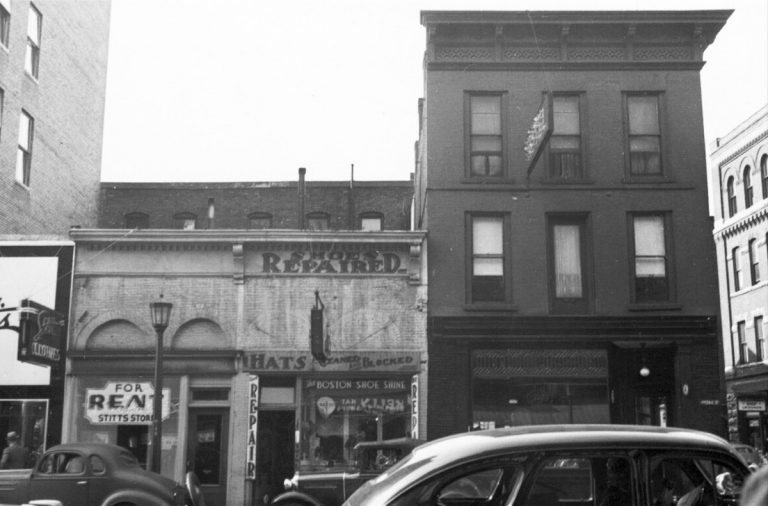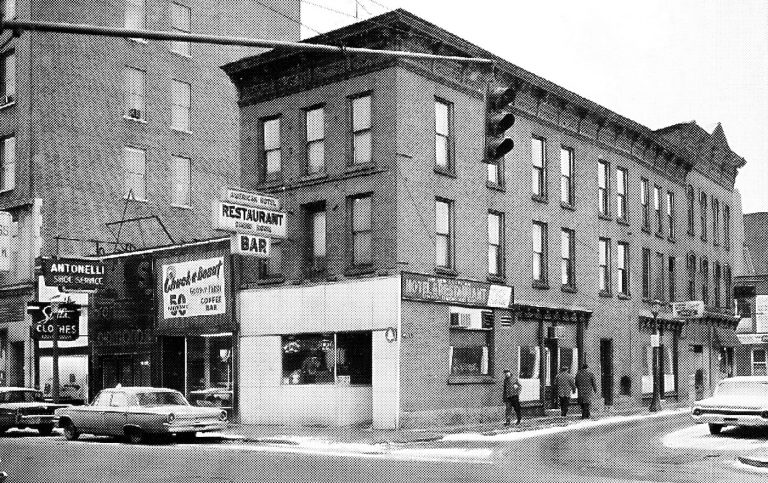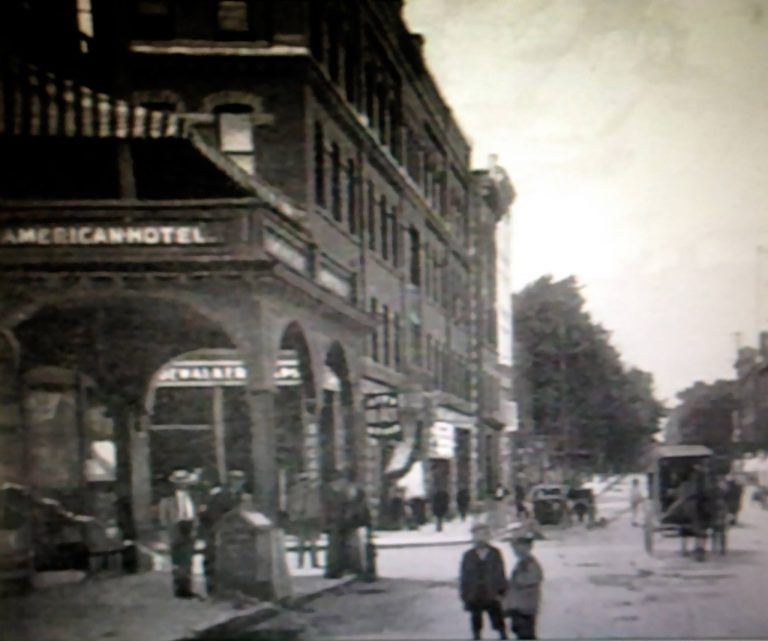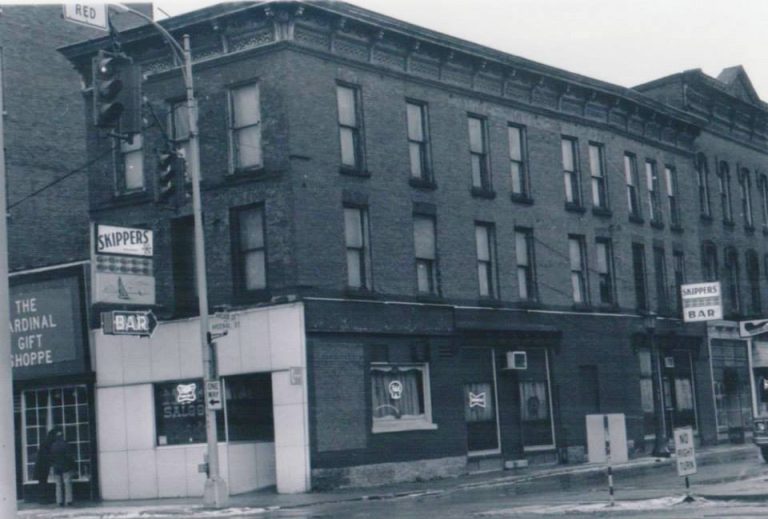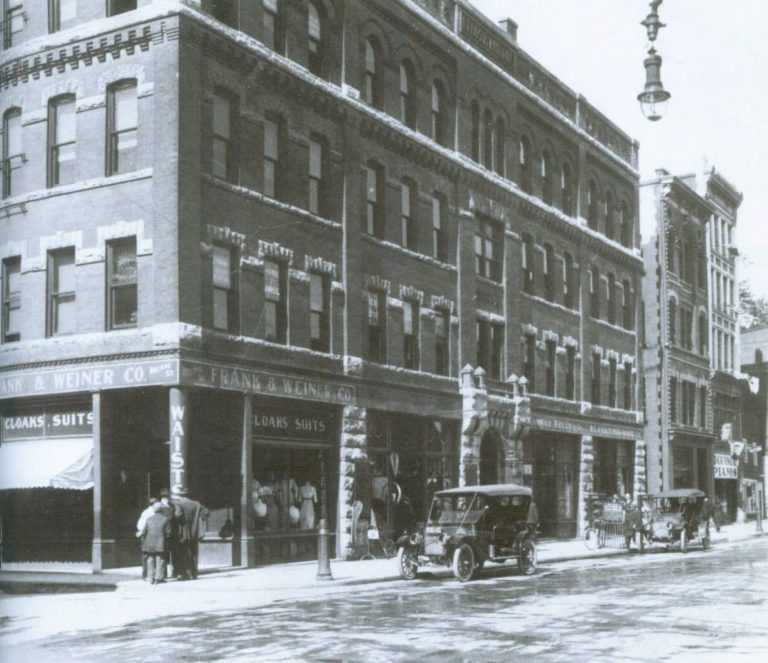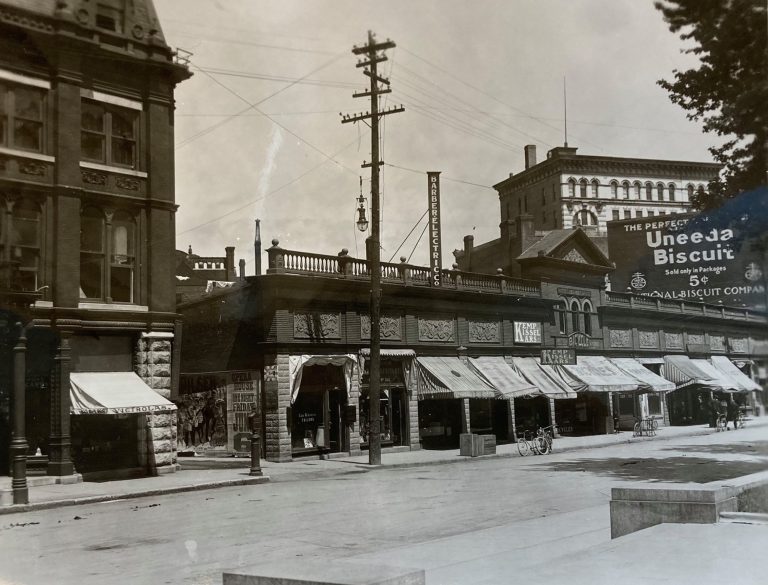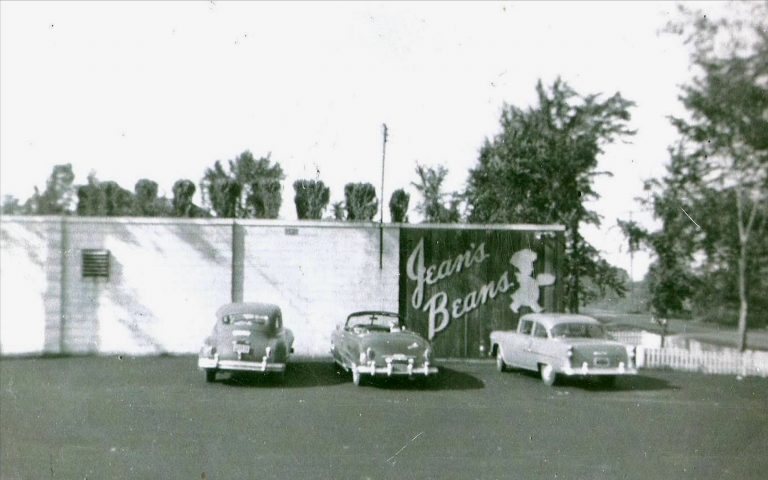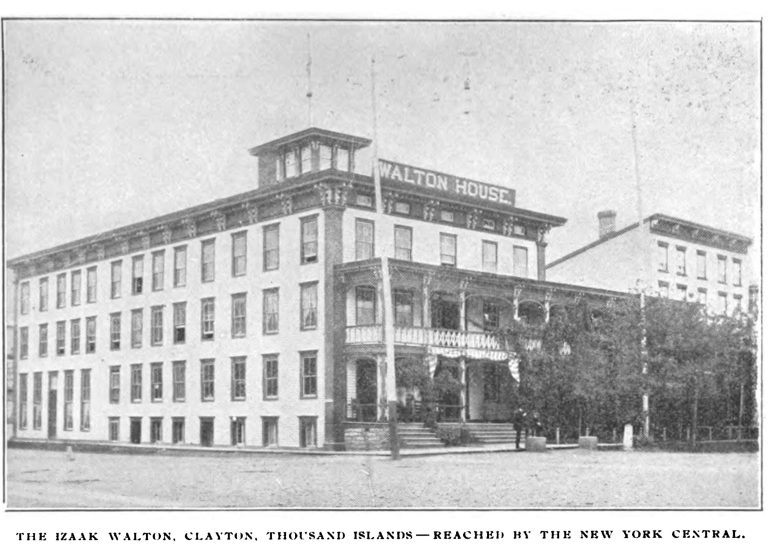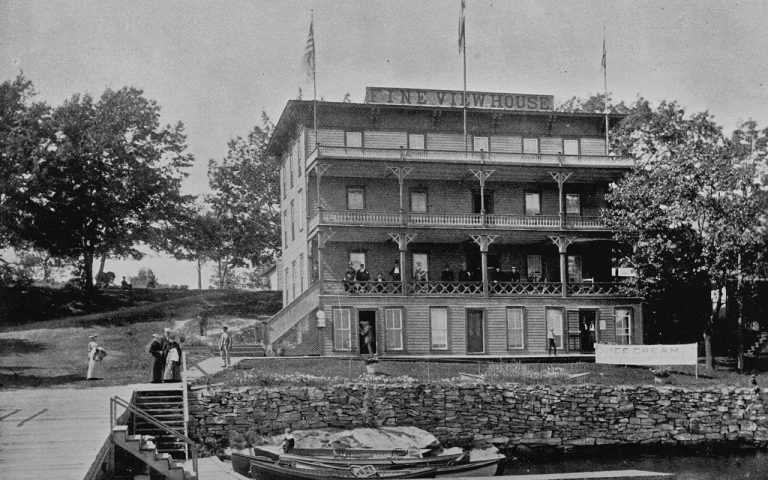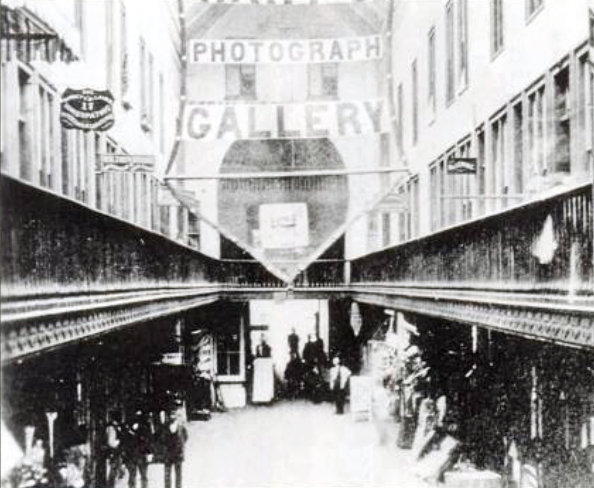The American Hotel on the corner of Arsenal and Arcade Streets
Constructed in 1851 after the great fire of 1849, the American Hotel was erected on the corner of Arcade and Arsenal Streets opposite the Fairbanks Building. Incidentally, at this time, the area in front of the Fairbanks Building and what is commonly referred to as the American Corner was then called Hanover Square. The hotel was initially to a temporary grocery store, meat market, and a doctor’s office, with its upper floors housing a number of rooms.
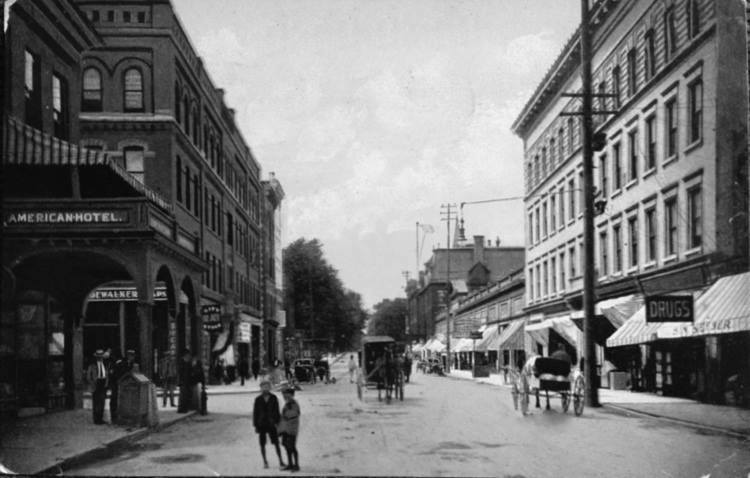
During its history, the American Hotel was the place John Brown, a friend of fellow abolitionist Frederick Douglass, stayed when he visited Watertown before his death in 1859. It was also the home to the Rebel Room, where former President Jimmy Carter stopped by on a campaign visit in 1975 (sadly, there was no Billy Beer on tap as it wasn’t available until the following year).
As for neighbors, the American Hotel outlived them all, except for the Smith Building and the Paddock Arcade. Many were lost during urban renewal, including the Fairbanks Building, while others, like JCPenney, which stood on the opposite corner of Arcade and Arsenal, seemed to have come and gone in the blink of an eye in comparison. Lest we forget, the Flower Building was there for many years prior, too.
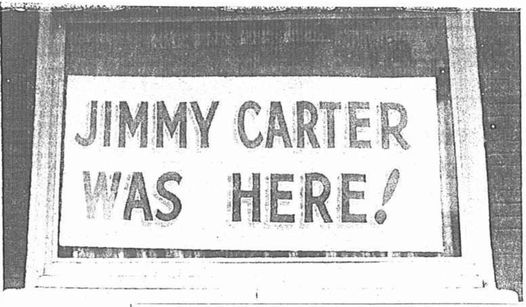
As the years went on, the hotel portion closed, leaving an assortment of bars operating, including the aforementioned Rebel Room, Skipper’s, and Jack in the Box, to name a few. Alas, with time, the building began to show its age and became an issue for the city, which spent tens of thousands of dollars stabilizing it, then cleaning its inside and removing asbestos in 2000.
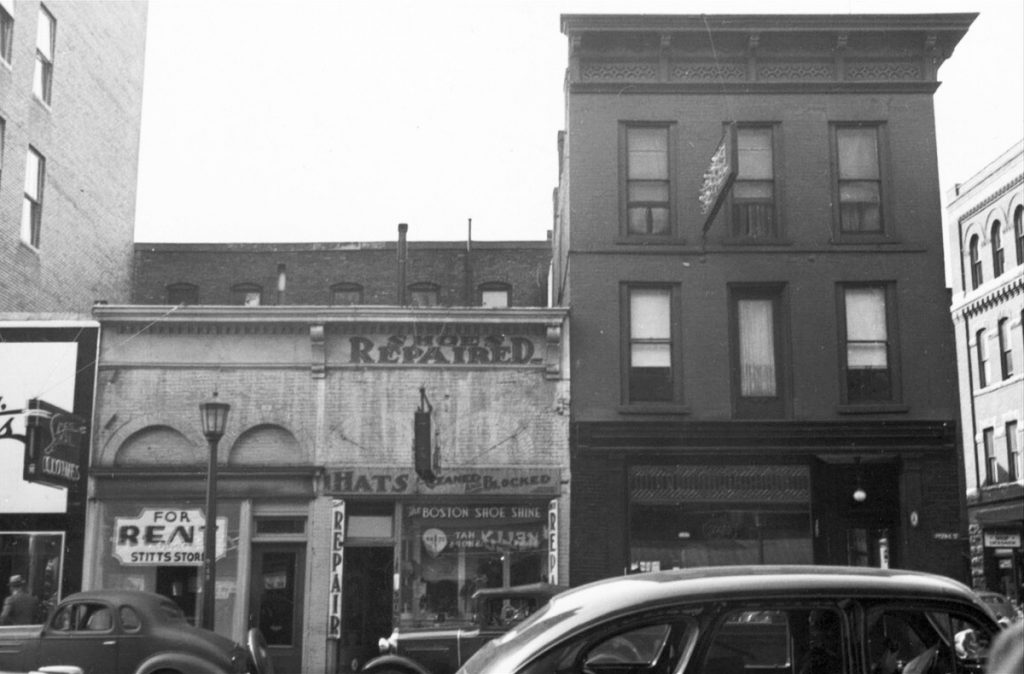
In January of 2001, City Council members toured the American Hotel and found holes in the floors and walls. Despite crumbling mortar and warped floors, some of the members felt the building could be saved, and in councilman Peter L. Clough’s eyes, “With the right person and financing, this could be a big plus for the city.” Mayor Joseph M. Butler told the Watertown Daily Times, “The outside is far more attractive than the inside.”
The City Council imposed a deadline of September 1, 2001, for the American Hotel and its neighboring Smith Block to find new owners to refurbish them, if not just the Hotel. In August, there appeared to be some hope as the Downtown Development Offices reported a former Watertown resident and lawyer expressed interest in turning the former American Hotel into a bar and restaurant with perhaps a small law office in the top portion of the building. With the news in hand, the City extended the deadline until November 21.
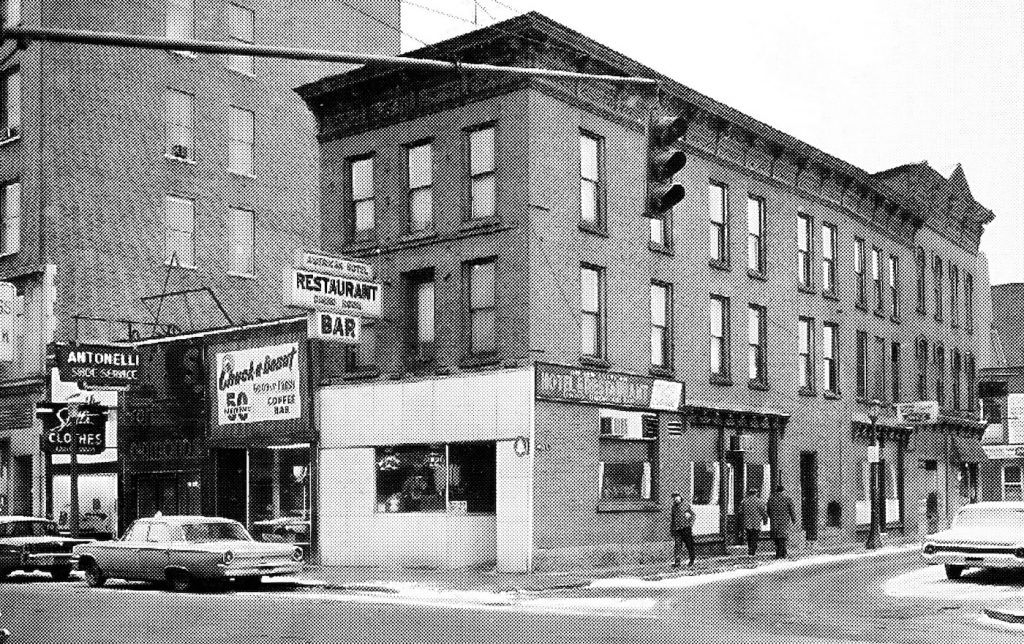
The Lawyer, James Hartz, who was currently living in Chattanooga, Tennessee, had made efforts to seek public support and funding through a variety of methods and involved Neighbors of Watertown in discussions as he estimated it would take $1,000,000 to refurbish the buildings that could, in turn, create 30 to 40 jobs. Admittedly in the early phases of researching the project, the clock was against Mr. Hartz.
With less than a month to go, on September 26, it projected they would receive an offer of $80,00o to repair the roof from the Watertown Industrial Center Local Development Corp. and Watertown Local Development Corp. As the Watertown Daily Times reported—
“It’s a win-win for the city,” said Gary C. Beasley, director of the Neighbors of Watertown who is helping with development plans. “As far as I am concerned it should be a no-brainer.”
The WICLDC agreed Tuesday to put up $40,000 to repair the roof of the Smith building and American Hotel if the Watertown Local Development Corp., also known as the Watertown Trust, matches the investment and the City Council agrees to extend the development options on them for three years.
“We can not ask them to invest $80,000 if the thing is going to turn into a pile of rubble,” said Eve C. Holberg, downtown development director, who has been negotiating potential developers.
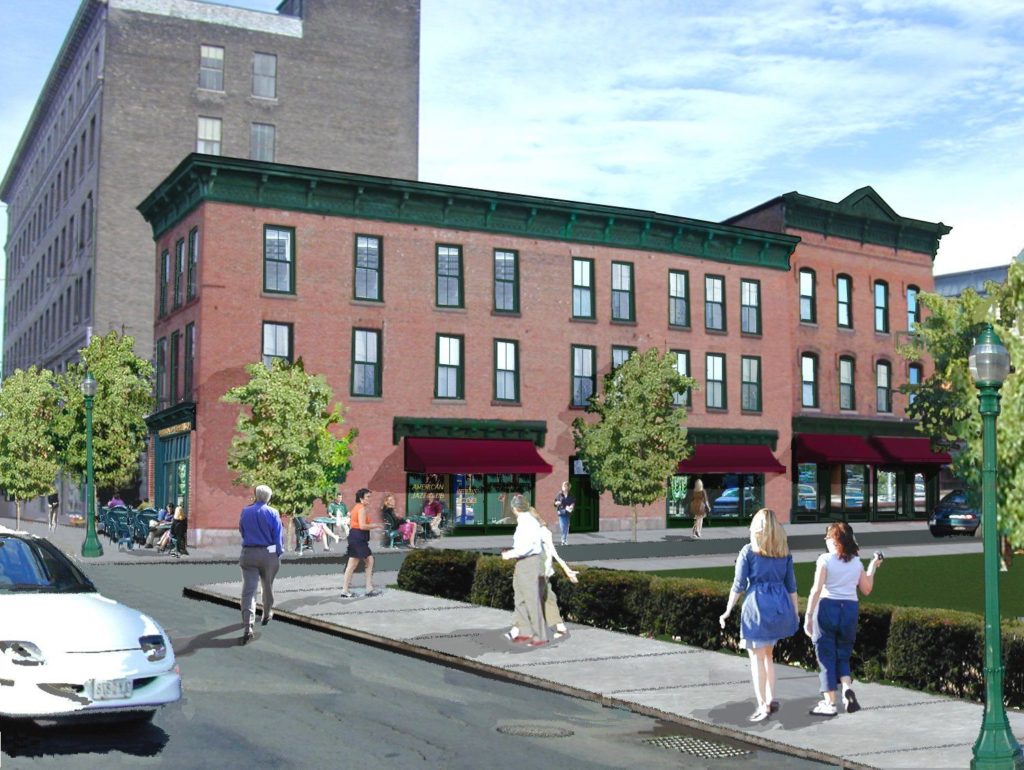
In a vote to extend the deadline another year, considering the gaining momentum for the renovation, the City Council nixed the idea, with its strongest supporter, Jerry Clough, voting against it, surprising many. “I’m sure a lot of people who wanted to save the American hotel will be disappointed, but as much as I would like to say yes, I think it’s time we cut our losses and move forward,” he told the Watertown Daily Times.
Rather than add another year onto the process that has already taken two years to get to that point, the effort to renovate the 150-year-old building came to a halt, and city officials almost immediately began eyeing the location as a new home for the city bus station.
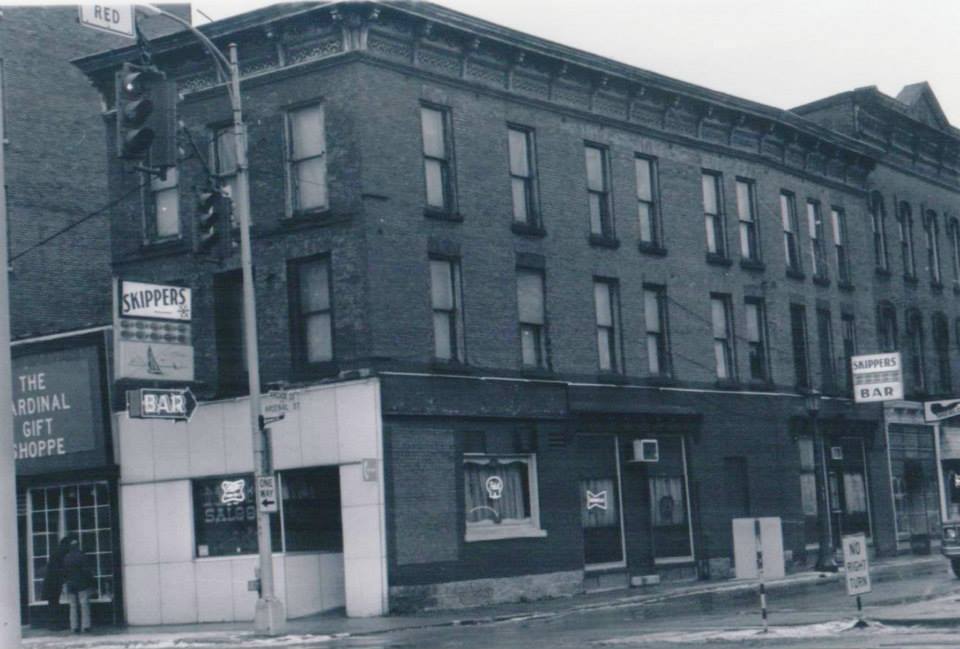
Former Councilman and Mayor Jeffrey Smith came forward in the last days to propose a plan to purchase the old hotel, stating it fits his business needs, but the plan hit a dead end with the city being unable to sell the building to him unless he were to resign from his seat on the city council.
In November, the city of Watertown began the process of demolishing the old American Hotel, despite the State’s director of the historic preservation field services bureau of the state Office of Parks, Recreation and Historic Preservation, Ruth L. Pierpont, writing a letter dated Nov. 1 that stated in part–
The OPRHP recommends that an alternative to demolition be considered. We understand that there has been interest in stabilizing the building and that the building has been marketed for resale. We would recommend that this process be continued to avoid demolition.
City Manager Jerry C. Hiller stated, “That’s their recommendation; it doesn’t stop the demolition,” though he also acknowledged that the state parks office would likely front on future grant requests from the city. We have highly compromised our chance to get another grant from the Office of Parks, Recreation and Historic Preservation,” he added.
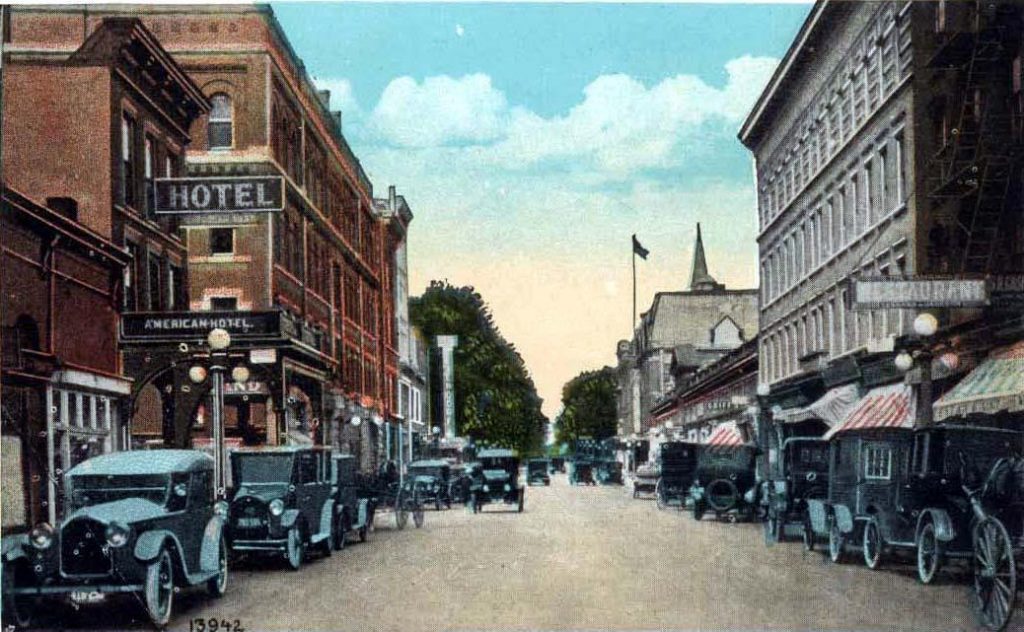
On December 19th, 2001, the former American Hotel was razed. Today, the location is home to a bus stop station.
